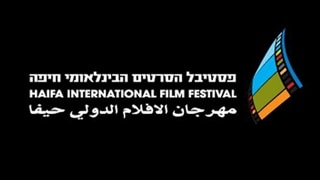Baba Joon
Written by Yuval Delshad
Directed by Yuval Delshad
Israel, 2015
This year’s edition of the Haifa International Film Festival has a strong Iranian inflection, highlighting a Mohsen Makhmalbaf retrospective and Yuval Delshad’s Baba Joon, the first Farsi-language Israeli feature film. Baba Joon premiered internationally at this year’s TIFF and is Israel’s submission to the Academy Awards foreign language category. Yuval Delshad’s feature debut stars Homeland’s Navid Naghaban as Yitzhak and British actress Viss Elliot Safavi as Sarah, an Iranian-born turkey farming couple in an early 1980’s agricultural settlement somewhere in the Negev desert of Southern Israel, and newcomer Asher Avrahami as Moti, their only child.
The crux of the drama is a time-worn premise of inter-generational conflict and changing times – thirteen-year-old Moti’s distaste for turkey farming goes against his father’s and grandfather’s ambitions of continuing the family business. In fact, the turkey farm is framed not merely as a business but as the core of the family’s identity – as the grandfather, a sympathetic but dictatorial patriarch figure, reminds Yitzhak, their family name signifies poultry-breeders. The audience is treated to snapshots of the turkey lifecycle, with chicks, young birds and mature turkeys featuring prominently. But headstrong doe-eyed Moti wants none of it – he has a talent for mechanics and an obsession with driving, not too subtly and somewhat implausibly revealed when Moti manages to concoct a functioning motor vehicle from scraps of old motorcycles and abandoned car parts, but is unable to clip turkey chicks’ beaks. The conflict is exacerbated when Moti’s uncle Darius (David Diaan), a jewellery maker, arrives from California for a visit and takes Moti’s side, encouraging his mechanical talents and trying to persuade Yitzhak to get rid of the turkey farm. The film is structured around intensifying iterations of this conflict, with Moti’s simmering dissent progressing from childish naysaying to moving in with his uncle, finally culminating in his setting the turkeys free.

What the plot lacks in originality – under Yitzhah’s hewn exterior is a manifestly kind-hearted family man and the outcome of the father-son confrontation is easily predictable – the film makes up in charisma and exoticism. Asher Avrahami’s performance as Moti, while a tad sentimental, is disarming in its mixture of innocence and resistance to adults’ wishes, while Navid Naghaban’s rugged but sensitive virility effortlessly fills the screen. Non-professional actor Rafael Faraj Eliasi is excellent as the tough grandfather, clinging to dominance over his grown sons and simmering with nostalgia for the irretrievable past in his native Iran. The film is also aided by the beautiful cinematography by Ofer Inov, especially strong when it comes to the contrast between the vast semi-desert exterior shots and the confined turkey coops. Comic relief is occasionally brought in via the petty quarrels taking place during the Iranian community’s Shabbat service.
While Baba Joon has some culturally specific undertones – namely the Iranian experience of adjusting to life in Israel, and the unusual mix of Farsi and Hebrew in the same conversation – its main premise of generational differences in the lives of immigrants is easily transposed to a universal context, while the storyline is staple Hollywood. Hence, perhaps, its selection as Israel’s entry for the foreign language Oscars.
The 31st Haifa International Film Festival, artistically directed by Pnina Blayer, will take place between September 26th and October 9th, 2015.


